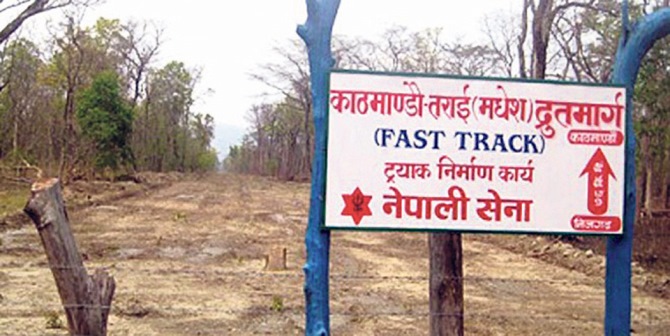Cases of social media scams on rise

Kathmandu, Feb. 17: A few days ago, the Metropolitan Police Crime Division arrested Kiran Pathak, a resident of Morang Pathari and temporarily residing in Gatthaghar of Bhaktapur, on charge of hacking the Facebook accounts of various people and extorting money from them.
According to the police, Pathak hacked Facebook and under various pretexts he appealed to people for an emergency help.
Similarly, Ramesh Tharu, 23, of Bardiya was arrested on the charge of being involved in online fraud through his Facebook page. He used to collect photocopies of the citizenship cards of various people, create fake Facebook pages and advertise for the sale and purchase of DSLR cameras and ordered to send 50 per cent amount first before the delivery of cameras to the customers.
Police arrested Mohammad Salim, 31, of Uttar Pradesh, India, for posting a photo of a woman on social media and blackmailing his relatives. He is accused of attaching a nude photo of a female friend working with him in Dubai during his foreign employment, sending it to relatives through social media including Facebook and making a fake Facebook ID with a nude photo of the victim. These are just representative events.
As the use of internet has increased in recent times, the incidents of cyber-crime has also been increasing. These representative incidents show that criminal incidence is growing in the society.
According to the Cyber Bureau of Nepal Police, 2,612 cyber-crime related cases have been registered in the first six months of the fiscal year 2078/07 B.S. The statistics of the bureau showed that the number of cyber-crime cases is increasing every year.
According to the bureau, most of the complaints are registered due to the social network sites like Facebook and Instagram. Cyber-crime is on the rise along with Facebook, Tiktok, Instagram,
Twitter, Messenger, Emo, Viber and others. As the number of users of social media has increased, so has the number of people being cheated, according to the police.
The incidents of soliciting money by making fake IDs of someone on social media, blackmailing by posting objectionable pictures, hacking the IDs of organisations and individuals are increasing.
According to the Cyber Bureau, 2,301 cases related to cyber-crime were registered in the fiscal year 2076/07, while the number had increased to 3,900 in the fiscal year 2077/07. Meanwhile, 2,612 cyber-crime cases have been registered in the first six months of the current fiscal year. These cases were registered upon direct visit of victims at the police office of the bureau, said Superintendent of Police and Spokesperson for the Crime Division Krishna Prasad Koirala.
There is a proverb in Nepali, 'Tight your bag rather blaming the thief'. Users of social media should also use social media in a safe way to avoid people like hackers, cheaters and blackmailers. The user should be aware of the potential risks, Koirala said.
Security experts said users should be the first to avoid potential risks through social media. The only way to be safe is to use the social media you know, they suggested.
SP Koirala said that cyber-crime occurs due to lack of knowledge about internet and safe method to use social media and easy temptation shown by others.
‘Not everything posted on social media is true. "Some people post with the intention of cheating," he said.
He said that if you do not accept the friend request of an unknown person while using social media, do not reveal secrets based on common acquaintances, do not give information, do not send videos and pictures, people than only can avoid cyber-crime.
According to SP Koirala, there are four to five types of public fraud in cyber-crime. In which people who are known on social media are tempted to send gifts, cheat to get lottery tickets, do not know about the official page when shopping online, apply for visa and pay for foreign employment on the basis of advertisement.
"To avoid cybercrime, you need to have a strong password in the application you run and don't talk to strangers unnecessarily," Koirala suggested.
Bijay Kumar Rai, director of the Nepal Telecommunications Authority's monitoring division, said that genuine operating systems should be used on computers and laptops to avoid cyber-crime, email passwords should be kept strong and long and two-factor authentication, OTP and fingerprint should be activated. Rai said that cybercrime can be avoided by not opening the unneeded links in Messenger, Viber, Emo, Instagram and e-mail.
Recent News

Do not make expressions casting dout on election: EC
14 Apr, 2022
CM Bhatta says may New Year 2079 BS inspire positive thinking
14 Apr, 2022
Three new cases, 44 recoveries in 24 hours
14 Apr, 2022
689 climbers of 84 teams so far acquire permits for climbing various peaks this spring season
14 Apr, 2022
How the rising cost of living crisis is impacting Nepal
14 Apr, 2022
US military confirms an interstellar meteor collided with Earth
14 Apr, 2022
Valneva Covid vaccine approved for use in UK
14 Apr, 2022
Chair Prachanda highlights need of unity among Maoist, Communist forces
14 Apr, 2022
Ranbir Kapoor and Alia Bhatt: Bollywood toasts star couple on wedding
14 Apr, 2022
President Bhandari confers decorations (Photo Feature)
14 Apr, 2022





.jpg)




